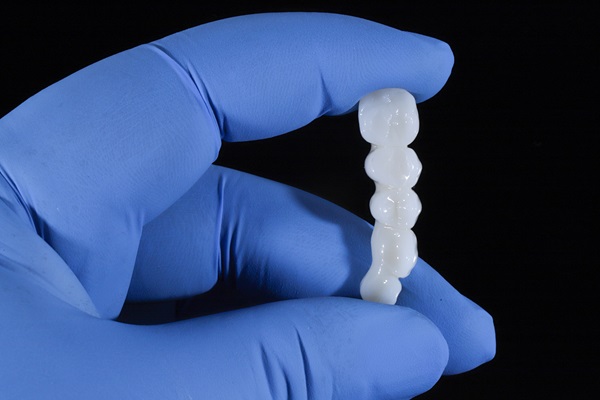5 Benefits of Dental Bridges

Dental bridges offer a reliable and effective solution for replacing missing teeth. A missing tooth, whether caused by injury, decay, or other dental issues, can impact the health and appearance of your smile. Fortunately, dental bridges can help restore your oral health. Here are five benefits of choosing dental bridges as your tooth replacement option.
1. Improved chewing and eating
Dental bridges help improve a patient's ability to comfortably chew and eat their food. Missing teeth can create challenges in effectively breaking down their food, leading to dietary limitations and digestive issues. Fortunately, dental bridges fill these gaps, allowing for a more efficient chewing process similar to natural teeth. Additionally, this restoration can contribute to better digestion and overall health, as patients can enjoy a wider range of nutrient-rich foods.
2. Restored speech and enunciation
Missing teeth can lead to changes in speech patterns and affect the pronunciation of certain words. Dental bridges help restore normal speech by filling the gaps that impact enunciation. When teeth are missing, sounds can become distorted, leading to speech difficulties. Dental bridges provide the necessary support for clear and confident speech, allowing patients to feel more comfortable in conversations and social interactions.
3. A minimally invasive tooth replacement option
Many patients choose dental bridges over alternatives like dental implants because they are a minimally invasive tooth replacement option. Dental implants often require one or more surgical procedures for placement. Additionally, if a patient lacks sufficient bone mass in their jawbone, they may need to undergo bone graft surgery. In contrast, the dentist can fit dental bridges in the patient's mouth without the need for invasive surgical procedures and an extensive healing process.
4. Prevents teeth from shifting and misalignment
When a person is missing a tooth, neighboring teeth may gradually shift to fill the open space. This shifting can lead to potential misalignment or bite issues over time. Dental bridges help maintain the natural alignment of the patient's teeth by filling these gaps, preventing unwanted shifting. Additionally, a dental bridge can help preserve the structure of the jawbone by stabilizing the surrounding teeth and preventing further bone loss in the jawbone.
5. Long-lasting and cost-effective
Dental bridges are designed to be a durable and long-lasting solution for tooth replacement. As long as bridges are properly maintained, they can last for many years, making them a cost-effective option. When compared to other tooth replacement options, dental bridges require minimal maintenance. Patients can maintain their new teeth with standard oral hygiene practices, which offers a convenient and sustainable option. They also provide the functional benefits of natural teeth without the need for complicated upkeep.
Schedule a consultation
Dental bridges offer a wide range of benefits that can improve your oral function and the appearance of your smile. Scheduling a consultation with a general dentist will allow you to explore tooth replacement options and help you determine if this restoration is the right choice for your needs. Call our office to learn more or to schedule a consultation.
Request an appointment here: https://summitdentist.com or call Summit Dentist at (908) 698-4229 for an appointment in our Summit office.
Check out what others are saying about our dental services on Yelp: Dental Bridges in Summit, NJ.
Related Posts
Dental bridges are a reliable solution for replacing missing teeth and restoring a complete smile. With several types available, it is important to understand the options and choose the one that best meets your needs. A general dentist can explain the different types of bridges and guide you toward the most appropriate choice.Dental bridges are…
A dental bridge is an option for those who have lost teeth and need to fill in that space to complete their smile or bite. The procedure involves crowns being placed on supporting teeth (known as abutment teeth) that are fused with your missing tooth or teeth by what's called an implant post. The tooth-replacement…
A dental bridge is a method of replacing one or more lost teeth. People often use the word bridge to indicate a removable tooth replacement option, but dentists have a different opinion. Dental professionals consider bridges as a device that attaches to the teeth permanently and is not removable — at least not by patients.…
Individuals suffering from damaged or unsightly teeth may benefit from receiving dental crowns. This straightforward and relatively common procedure can help restore the look and function of healthy, natural teeth. While a variety of components may be used to form dental crowns based on the patient's individual preferences and needs, the installation process is usually…


